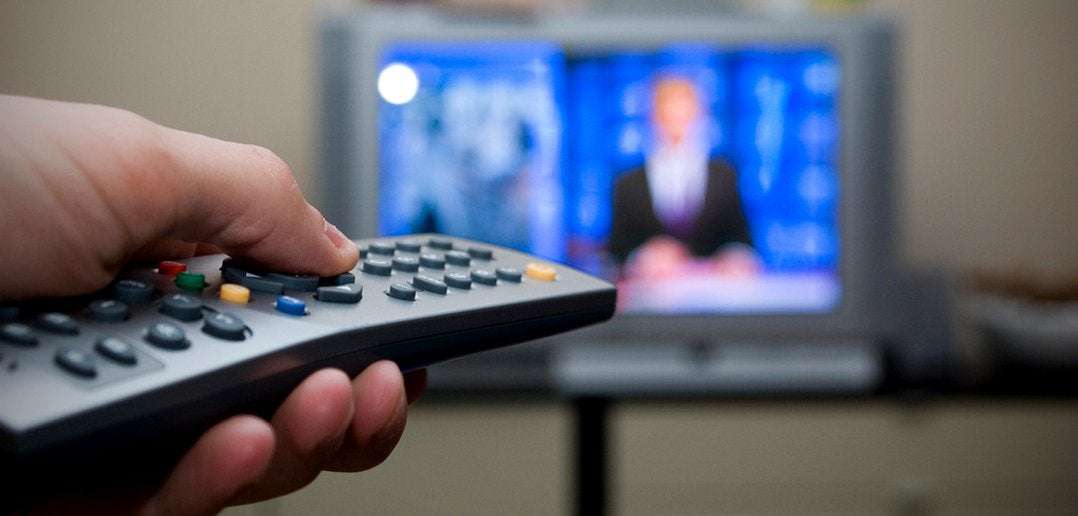New research provides evidence that Americans’ media consumption habits and trust in government predict their level of knowledge about COVID-19. The study appears in the journal Frontiers in Psychology.
“We chose to undertake this study to better understand the role that patterns of media consumption play in shaping knowledge of COVID-19 and prejudice towards Asian Americans who have been heavily stigmatized during the pandemic,” said study authors Lindsay Y. Dhanani and Berkeley Franz, who are both assistant professors at Ohio University.
“The World Health Organization has referred to the sheer amount of new information, true and otherwise, individuals are receiving during the pandemic as an ‘infodemic.’ Our study builds on this phenomenon by assessing whether the news sources individuals use are associated with having accurate knowledge about COVID-19, including how it spreads and how to treat it, as well as with holding prejudice towards Asian Americans.”
For their study, the researchers surveyed 1,141 U.S. adults between March 13 and March 18, 2020, regarding their media consumption habits, trust in government, knowledge related to COVID-19, and prejudicial views.
More specifically, the participants were asked how frequently they relied on television, news websites, radio, social media, and print newspapers, and whether they regularly used CNN, Fox News, Facebook, National Public Radio (NPR), the New York Times, and/or Twitter for news. They also completed a test to measure their knowledge of COVID-19, completed an assessment of prejudice towards Asian Americans, and rated their level of trust in the Centers for Disease Control and Prevention (CDC) and President Trump.
In line with previous research conducted by Dhanani and Franz, trust in government was related to both prejudice and knowledge about the virus. Greater trust in the CDC was associated with increased knowledge, reduced endorsement of misinformation, and lower prejudice toward Asian Americans, while greater trust in the President Trump was associated with decreased knowledge, greater endorsement of misinformation, and higher prejudice.
The researchers also found links between media consumption habits and the variables of interest.
“Media choices are shaped not only by personal preferences but also by important social identities including partisan affiliation. Our study demonstrates that the media sources from which individuals receive information about COVID-19 is associated with the level of knowledge they have about COVID-19, and thus media can have an important impact on the degree to which individuals are informed about the ways they can keep themselves safe from infection,” Dhanani and Franz told PsyPost.
“Relying on media formats such as print media and radio was associated with less accurate knowledge of the symptomology, spread, and treatments for COVID-19. Further, individuals who use social media were more likely to endorse misinformation about COVID-19. News sources, especially social media, radio, and print media were also associated with higher levels of prejudice toward Asian Americans who have been stigmatized due to the novel coronavirus emerging from China in late 2019.”
Relying on web news sources, in contrast, was associated with a reduced tendency to endorse misinformation, such as believing that COVID-19 has a similar mortality rate as the flu or believing that COVID-19 is a manmade virus.
When it came to specific news sources, the researchers found that people who regularly used Fox News, Twitter, or Facebook tended to endorse more misinformation, have increased prejudice and reduced knowledge compared to those who didn’t regularly use these sources. On the other hand, those who reported regularly using NPR or the New York Times tended to endorse less misinformation, have increased knowledge and reduced prejudice.
The researchers controlled for political affiliation, education, age, gender, and race. But the study — like all research — includes some limitations.
“Our study relied upon cross-sectional analyses from a national survey conducted in March 2020. As a result, it is not possible to say with certainty that news consumption, as opposed to other factors, was causally related to COVID-19 knowledge and prejudice,” Dhanani and Franz explained.
“We undertook an additional study during the summer of 2020 which utilized an experimental design to assess different types of media framing on prejudice toward Asian Americans and xenophobia more generally. Although this study was not focused on the type of news media, it provides further evidence that the messages Americans receive about COVID-19 are powerful in shaping assessments of the virus and the likelihood of blaming outgroups and minorities in the U.S. for the physical and social harms brought on by the pandemic.”
“Our findings show the importance of disseminating accurate information about public health crises in ways that do not rely on stigmatizing language or depictions. We also believe our findings highlight the need to remove barriers to the public accessing credible information about public health epidemics. The decision some news outlets made to remove paywalls for content related to COVID-19 is commendable and may help reduce reliance on information from less credible sources,” the researchers added.
The study, “The Role of News Consumption and Trust in Public Health Leadership in Shaping COVID-19 Knowledge and Prejudice“, was published October 22, 2020.

Tiquortoo on December 4th, 2020 at 16:55 UTC »
If I'm reading this right, the questions on their metrics involved 4-6 questions and the difference between the reduced knowledge group and regular was 1 question. Interesting study, but not exactly an ironclad conclusion.
InsaneAction on December 4th, 2020 at 14:01 UTC »
https://www.frontiersin.org/articles/10.3389/fpsyg.2020.560828/full
This study was done when no one had any answers. Back in March it felt like every day the narrative changed.
Also the third time,
was used as a reference I cringed a little.
ferrel_hadley on December 4th, 2020 at 10:23 UTC »
People have turned to seeking validation and entertainment from their sources of news.
This creates an ecosphere where there is almost no downside to only seeing what makes you feel good, until something like a pandemic hits.